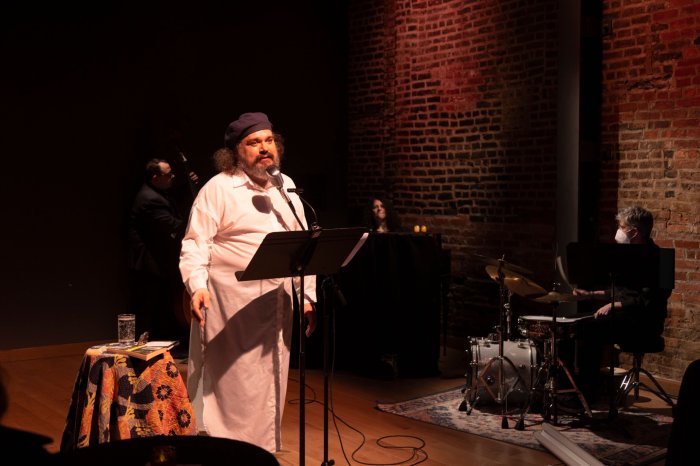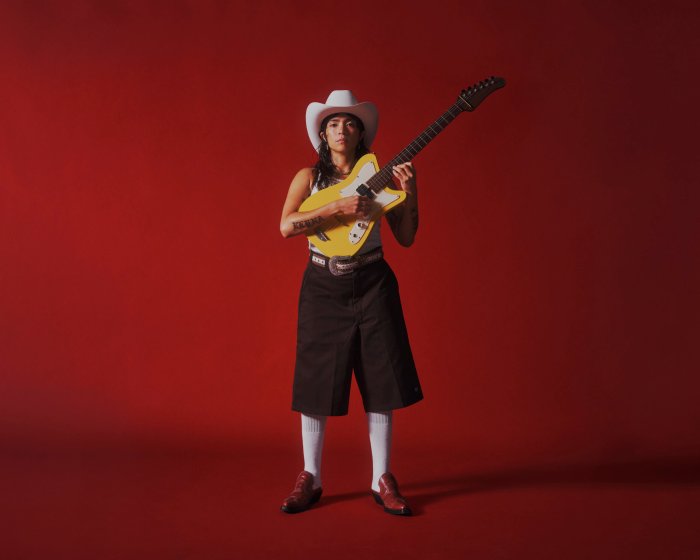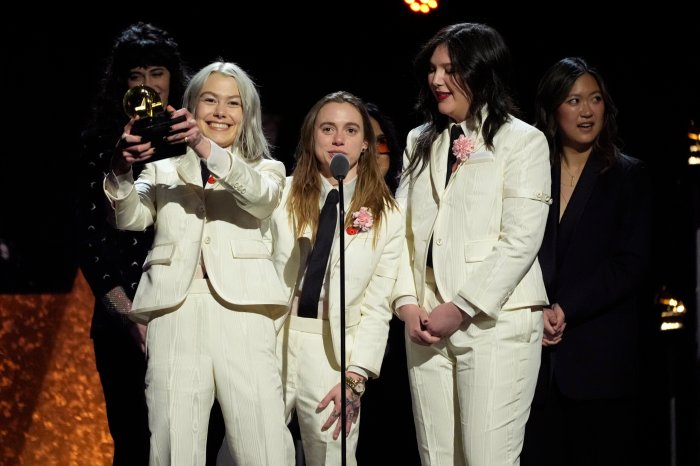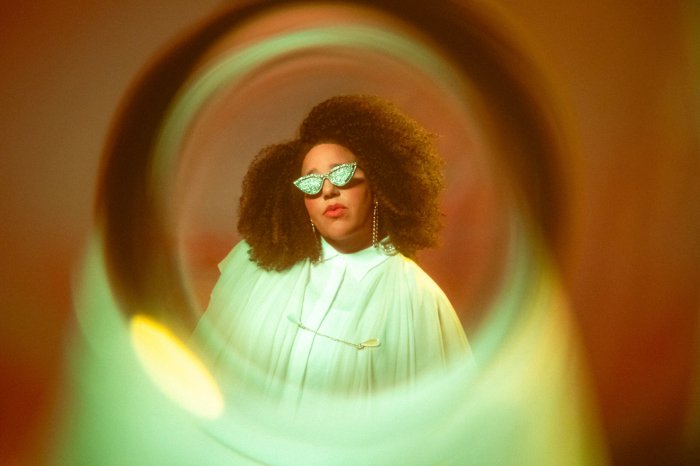City Opera wisely revived its very pleasing production of Richard Strauss' odd but endearing “Intermezzo.” In 1999, this Glimmerglass-derived Leon Major staging provided wonderful roles for Lauren Flanigan and John Hancock as the flamboyantly fighting Christine and Robert Storch (read “Pauline and Richard Strauss”).
Seen November 9, Mary Dunleavy brought a very different persona and voice to Christine's marathon part — tons of charm and a light touch helped make her prima donna tantrums palatable. Dunleavy's voice is less expansive but more silvery than Flanigan's; none of the part's high notes gave her trouble. It was an excellent interpretation, making one wish to hear this resourceful artist as Strauss' Daphne.
Offerings from City Opera, Opera Manhattan more affecting than Met's
Nicholas Pallesen is a likable and capable singer with good instincts, but he didn't quite seem mature enough for this established figure and comfortably married man.
Tenor Andrew Bidlack made a very positive contribution in the tricky role of the money-grubbing young Baron who (kind of) turns Christine's head on the ski slopes. His fluent, light tenor and stage aplomb should suit many roles, especially if George Steel realizes that Handel and baroque opera must be part of the equation if City Opera's repertory is to find an audience.
George Manahan's orchestra did not play flawlessly but caught the spirit of this bittersweet and charming valentine.
The Met's “Cosi fan tutte” proved rather disappointing. Ex-pat conductor William Christie's near-annual appearances at BAM with his own forces have inspired local audiences for two decades. Though reliable witnesses report improvements at every performance, even the run's third show (November 17) found the orchestra and soloists struggling to keep up with Christie's often relentless tempi. The overture was a joyless forced march, and many ensembles suffered.
Christie only relaxed for “Un aura amorosa,” well sung by Bruce Sledge, a last-minute replacement for Pavol Breslik. The American tenor has a somewhat adenoidal timbre under pressure, but a better technique than his Slovakian “It Boy” colleague Breslik has exhibited locally. Holding one's own flawlessly in Ferrando's mercilessly complex music is a real accomplishment. Christie brought some genuine insights as well; inserted cadenzas and other decorations were apt and pleasing. Still, the music and drama rarely breathed.
Duane Schuler's Neapolitan lighting and Michael Yeargan's designs remain enjoyable, yet little of the acting (save for Miah Persson, seriously overparted as Fiordiligi, but still artistic and moving) had much charm or nuance. The worst offender was Danielle de Niese, unbearably mannered in recitative and with a tessitura audibly too low for her comfort.
In this HD-broadcast bound cast, touted for its sexiness, Isabel Leonard and Nathan Gunn looked great and sang fluently if somewhat anonymously. Replacing the originally announced Wolfgang Holzmair, William Shimell offered aristocratic good looks and a bone-dry voice.
Unlike Boston and San Francisco, New York has never heard a major production of Verdi's magnificent “Don Carlo” in its original French. It would have been wise to build such an endeavor around Roberto Alagna, but instead we heard the Parisian tenor's first traversal of the role in Italian — by and large a success, in very good current form with only a few wild or sharp high notes to set against a passionate and often touching portrayal — in the neo-traditional Nicholas Hytner staging from London's Covent Garden.
Hytner skillfully motivates the action and his designers achieve swift flow; the only real misfires are several Lego-evoking sets, the huge Bleeding Christ head (!), and an Inquisition priest's intonation in Latin during the auto-da-fé scene.
The real glories heard November 22 (besides Verdi's) were the propulsive conducting of Yannick Nézet-Séguin (hailed by the audience) and the magisterial Filippo of Ferruccio Furlanetto, who, despite a few grayed top notes, gave the music due grandeur and its only truly Italian flavor.
None emerged in the nobly enacted, beautifully phrased, but alarmingly poorly vocalized Posa of Simon Keenlyside (also hailed by an audience which increasingly hears with its eyes), the exciting, darkly churning but pitch-challenged and blowsy Eboli of Anna Smirnova (a débutante here), or the suitably repellent Inquisitor of Eric Halfvarson, who sounded like a particularly out-of-humor Fafner.
Oddest of all was Marina Poplavskaya's touching Elisabetta, properly beautiful and haughty, but a phrase-by-phrase combination of genuine vocal beauty and sharp, awkward singing, lovely piano effects and technical insufficiencies. Alexei Tanovitsky, also debuting, offered an imposing-voiced Friar.
Heard again November 29, Keenlyside was in much better voice, though he'll never own the Verdi rep. In this show Yonghoun Lee, a tall, willowy Korean tenor who can act, made a very impressive debut as Carlo, surpassing Alagna in many ways, among them pitch and ringing ease at the top.
A new, self- described “scrappy young company” called Opera Manhattan put on a triple-cast “La Boheme” with a contemporary slant in one of Off-Off-Broadway's black box Roy Arias Studios. Heard November 20, it was an affecting performance due to producer Elspeth Davis's ingenious use of a tiny space and a game young cast. The look was “bohemian” as in East Village hipster, but Davis wisely avoided the current clich√© of having an impoverished Rodolfo (Edgar Jaramillo) on a laptop; only the charmingly grasping Musetta of Kristina Semos could afford a cell phone. Schaunard (Robert Maril) and Colline (company co-founder Bryce Smith) were played as an openly affectionate gay couple, which made perfect sense in this context. Somehow, despite their penury, these handsome guys did not lack for access to good haircutters and product.
Everyone had something to offer, but the finest work came from Vaughn Lindquist, a robust-voiced yet nuanced Marcello ready for larger companies. Anna Noggle, also singing very creditably, offered an extremely detailed and moving Mimi; her big moments evoked tears. The score, under music director Lloyd Arriola (piano, prompter) and Spencer Blank (keyboard), did indeed emerge scrappy but spirited, and – unlike other mini-“Boheme” productions I've seen -the team shirked nothing; the chorus took enthusiastic part in the performance.
Next up for Opera Manhattan: Humperdinck's wayward siblings, then Floyd's “Susannah.”
David Shengold (shengold@yahoo.com) writes about opera for many venues.


































